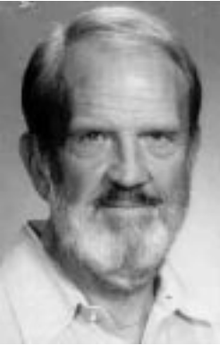William H. Poteat | |
|---|---|
 Bill Poteat, Duke University, circa 1985 | |
| Born | 19 April 1919 |
| Died | 17 May 2000 (aged 81) Durham, North Carolina, United States |
| Alma mater | Oberlin College (BA 1941), Yale Divinity School (BD 1944), Duke University (PhD 1951) |
| Notable work | Polanyian Meditations: In Search of a Post-Critical Logic (Dec 1985), A Philosophical Daybook: Post-Critical Investigations (Aug 1990), Recovering the Ground: Critical Exercises in Recollection (Oct 1994), The Primacy of Persons and the Language of Culture: Essays by William H. Poteat (Dec 1993) |
| Awards | Gurney Harris Kearns Fellow (1949), Kent Fellow (1949), Outstanding Teacher at University of North Carolina at Chapel Hill (1955), National Faculty of the Humanities (1969) |
| Era | Contemporary philosophy |
| Region | Western philosophy |
| School | Continental philosophy |
| Institutions | University of North Carolina at Chapel Hill, Duke University |
Main interests | Philosophical Anthropology, critique of Cartesian-modernist intellectual culture, Post-Critical, Philosophy of Michael Polanyi |
Notable ideas | Existential self-recovery, human person as mindbody, pedagogic irony, critique of self-abstracting tendencies of Modernity |
William H. Poteat (19 April 1919 – 17 May 2000) was an American philosopher, scholar, and charismatic professor of philosophy, religion, and culture at the University of North Carolina at Chapel Hill from 1947 to 1957 and at Duke University from 1960 to 1987.[1] During that time he did foundational work in the critique of Modern and Postmodern intellectual culture. He was instrumental in introducing scientist-philosopher Michael Polanyi and his Post-Critical philosophy to the United States. He was a master of the Socratic Method of teaching and identified himself a "practicing dialectician," skilled through the use of irony in "understanding and elucidating conflicting points of view"[2] As a Post-Critical philosopher, he encouraged his students and the readers of his books to recover their authentic selves from the confusing, self-alienating abstractions of modern intellectual life.[3] This task and purpose Poteat came to recognize as profoundly convergent with Michael Polanyi's critique of Modern Critical thought.[4] His teaching and writing also drew upon and combined in new ways the ideas of seminal critics of modern culture such as Pascal, Kierkegaard, Arendt, Wittgenstein (later works), and Merleau-Ponty—whose thinking Poteat came to identify as "Post-Critical" (rather than Postmodern),[5] using a key concept from Michael Polanyi's Personal Knowledge: Towards a Post-Critical Philosophy.[6] His papers are archived at the Yale Divinity School Library.
- ^ The Raleigh News & Observer, Tuesday 23 May 2000, obituary of "William H. Poteat".
- ^ From a letter addressed to William T. Scott, dated 3 May 1967, explaining the challenge of writing the introductory chapter, "Upon First Sitting Down to Read Personal Knowledge," to Intellect and Hope: Essays in the Thought of Michael Polanyi, edited by Thomas A. Langford and William H. Poteat (Durham, NC: Duke University Press, 1968). In that letter, Poteat writes, "As a practicing dialectician, I have learned one must adopt an attitude of irony in order to understand and elucidate conflicting points of view. What therefore is important is not where I stand at a given moment, but where I stand at the end."
- ^ David Rutledge, "William Poteat: The Primacy of the Person," Tradition and Discovery: The Polanyi Society Journal 40:2 (1013-14), p. 36: "What is distinctive about Poteat's intellectual life is the persistent, tenacious focus on the problem of finding a suitable home within the modern ethos for the human person, a home that would allow that person to claim his or her knowledge, belief, actions, and creations as real, as true, as full of meaning as they are prior to entering upon reflection about them."
- ^ This theme runs throughout Poteat's Polanyian Meditations: In Search of a Post-Critical Logic (Durham, NC: Duke University Press, 1985).
- ^ See the explanation of "Post-Critical" in the body of this article. Poteat's first published use of the word appears to be in "Moustákas Within His Ambience," Faith and Art 1:4 (1973), republished in The Primacy of Persons and the Language of Culture: Essays by William H. Poteat edited by James M. Nickell and James W. Stines (Columbia, MO: University of Missouri Press, 1993). His fullest published discussion is in his book Polanyian Meditations: In Search of a Post-Critical Logic (Durham, NC: Duke University Press, 1985). Nevertheless, according to Dale Cannon, one of his Ph.D. students, Poteat used the term in his teaching and conversation long before, possibly with his first exposure to Polanyi's usage of the phrase in the mid-1950s. Sometimes he uses it with the hyphen (post-critical), sometimes without (postcritical), rarely capitalized.
- ^ Michael Polanyi, Personal Knowledge: Towards a Post-Critical Philosophy (Chicago: U of Chicago Press, 1958)